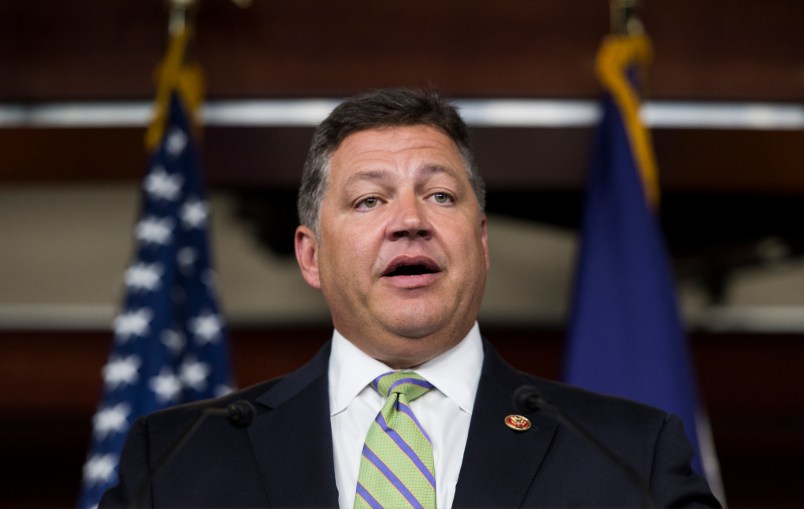WASHINGTON (AP) — Pennsylvania Rep. Bill Shuster, the powerful Republican chairman of the House Transportation and Infrastructure Committee, announced Tuesday that he won’t run for re-election.
Shuster said he wants to focus his time and energy on working with President Donald Trump on legislation to spend hundreds of billions of dollars to build roads, bridges and other infrastructure.
The decision was somewhat of a surprise. Although he was barred by GOP rules from seeking another term as transportation committee chairman, Shuster had publicly hinted that he would be staying in Congress and had noted that he is a senior member of the House Armed Services Committee.
His rural Pennsylvania district is reliably Republican, and Shuster has handily beat back challenges from the right. Shuster’s father, Bud, had held the seat — and also chaired the transportation panel — prior to retiring in 2001.
As transportation committee chairman, Shuster is positioned to play a major role in the drafting of legislation to implement Trump’s infrastructure plan. He met last month with Trump at the White House. The administration expects to release a detailed set of infrastructure principles in the new few weeks.
Shuster said in Tuesday’s statement that he’ll spend his final year in office “focusing 100 percent on working with President Trump and my Republican and Democratic colleagues in both chambers to pass a much needed infrastructure bill to rebuild America.”
His top legislative priority has been removing air traffic control operations from the government and placing them under the authority of a private, non-profit corporation. He has succeeded in winning transportation committee approval for the plan, but that’s as far as the proposal has gone.
Shuster helped persuade Trump to back the plan, which is also a top lobbying priority of the airline industry. But the bill faces fierce opposition from other segments of the aviation industry, including private pilots and business aircraft operators, and is almost universally opposed by Democrats. Short the votes necessary for passage, GOP leaders have been unwilling to bring the measure to the House floor for a vote.



